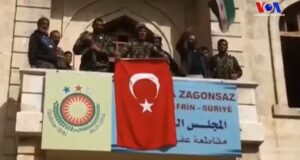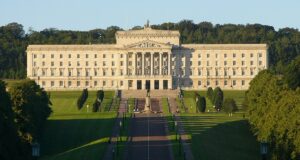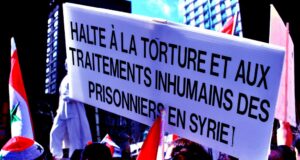Guest Contributor: Robert Halfon MP
20th January 2014
Robert recently visited Kurdistan in Northern Iraq with the All-Party Kurdistan Group. In this article he describes the three challenges facing the Kurdistan Regional Government (KRG).
When people ask me if the Iraq war was worth it, I usually answer with just one word: ‘Kurdistan’. Without the intervention of Prime Ministers John Major and later Tony Blair, it is likely that there would be no Kurdish nation now in Northern Iraq.
From the 1960s to the 1980s, Ba’athists and chiefly Saddam Hussein waged genocide against the Kurds – the most lethal part of which is known as ‘The Anfal’. The genocide culminated in 1988 with Saddam’s aerial bombardment ofmustard gas in Halabja, killing over 5,000 people in hours. By 1992, and more formally in 2005, the horrors of The Anfal led to the establishment of the Kurdistan Autonomous Region – part of Iraq, and subject to the country’s Constitution, but with serious autonomy.
What emerged from the ashes of murder and bloodshed has been all the more remarkable. The KRG has set in train a progressive Muslim nation, democratic and subject to the rule of law. For Kurdistan, freedom is not just about elections, but a place where women have equality, where all religions are respected, where property rights are manifest, and where a free press is unshackled. It is early days but the trend is positive.
Across the KRG, business is flourishing and keen on British andforeign investment. Privatisation continues apace and huge property complexes are being built. The KRG has significant oil and gas reserves, used for the benefit of the country, not salted away in corruption.
And yet, three significant challenges face the KRG – some of which threaten its survival as an autonomous region within Iraq: Terrorism; the Situation in Syria; the recognition of the Genocide.
It is worth dealing with each in turn:
1. Terrorism. Since its founding, the KRG has faced significant threats from terrorism, some from Iran and some from Al Qaeda but there have actually been very few attacks thanks to tight security. Outside every major building there are guards checking for suicide bombers. Armed check-points are on all major roads.
Last September, there were two linked suicide bomb attacks in Erbil: one on the Interior Ministry and the other on the next door Security Directorate. Seven security guards died, with more injured. The atrocity was linked to Al Qaeda who is thought to control vast swathes of Mosul, an Iraqi Province next to the KRG where a strong Salafist movement has been established. On visiting the Interior Ministry a few months after the attacks, one Minister suggested that if action was not taken, Mosul could become a second Afghanistan in one year. This would have significant implications not just for Kurdistan but the whole of Iraq.
The KRG said at the time:
“The attacks come when Kurdistan has achieved another democratic milestone by holding its fourth free and fair parliamentary elections, the results of which were announced one day before the terrorist attacks. The attacks demonstrate that there are those who stand against our democratic journey.”
2. Syria. It is thought that terrorism across Iraq is being aided and abetted by terrorists passing through Syria. But, in addition to the exploitation of the Syrian crisis by extreme Islamists (funded in part from Saudi Arabia, Somalia and Sudan), there is a new threat to the existence of Syrian Kurds, who represent nine percent – around 1.9 million – of the total population.
As well as Turkey and Iran, the KRG also borders Syria, inevitably leading to refugee movement to the safer Kurdish side of the border. I visited the Domiz camp, just 40 miles from Syria, where there were seventy-five-thousand refugees, including fifteen-thousand children. Despite the misery of exile, this place showed something of the Kurdish can-do entrepreneurial spirit, with small tented shops, even hairdressers, sprouting amidst the corrugated shacks that the refugees were living in.
In terms of humanitarianism and security, the Syrian Conflict’s ripple effect on Kurdistan is plain to see. However, what is less clear is what happens in terms of geopolitics. With 250,000 Syrian Kurds now in the KRG, what happens if Syria breaks up post-Assad? Does the Kurdistan Region extend into Syria, with the risk of a domino effect on the millions of Kurds who live in Iran and Turkey?
3. The Genocide. Inexplicably, the genocide against the Kurds – described above – has not been recognised internationally, causing a deep sense of grievance amongst the Kurds. Major perpetrators of the chemical gas attacks have not been brought to justice, and some are thought to live freely in Europe. Many of the companies – from the West – who sold Saddam the materials used to make chemical weapons, have not yet faced the criminal courts. In Iraq, the Ba’athist Arab hatred of the Kurds is strong in some areas, even though the Iraqi Parliament has recognised the genocide in 2008.
Despite the Netherlands courts and the House of Commons recognising the genocide in 2013, it remains incumbent on Western Governments to push through a relevant resolution in the United Nations. Recognition would mean those responsible for war crimes could appear before the international court and compensation/reparation would be given to the KRG. The Kurds are a nation that does not live in the past, but learns from the past. Recognition would help heal wounds from many years.
I said at the beginning that Western intervention in Iraq saved a nation from being exterminated. But that is not enough. The free world has a real chance here of a new prosperous, democratic and forward-looking Muslim nation forging ahead – from the end of the Ba’athist rule of Iraq.
Kurdistan has the potential to act as a beacon for the rest of Iraq, be a force for good in the Middle East, and spread these values across the region. Muscular enlightenment means more than deposing dictatorships and stopping mass murder. It means helping to embed the conditions for those evils never to return.
Disclaimer: The views expressed in the article are the sole responsibility of the author and do not necessarily reflect the views of the Human Security Centre.
 Human Security Centre Human Rights and International Security Research
Human Security Centre Human Rights and International Security Research




